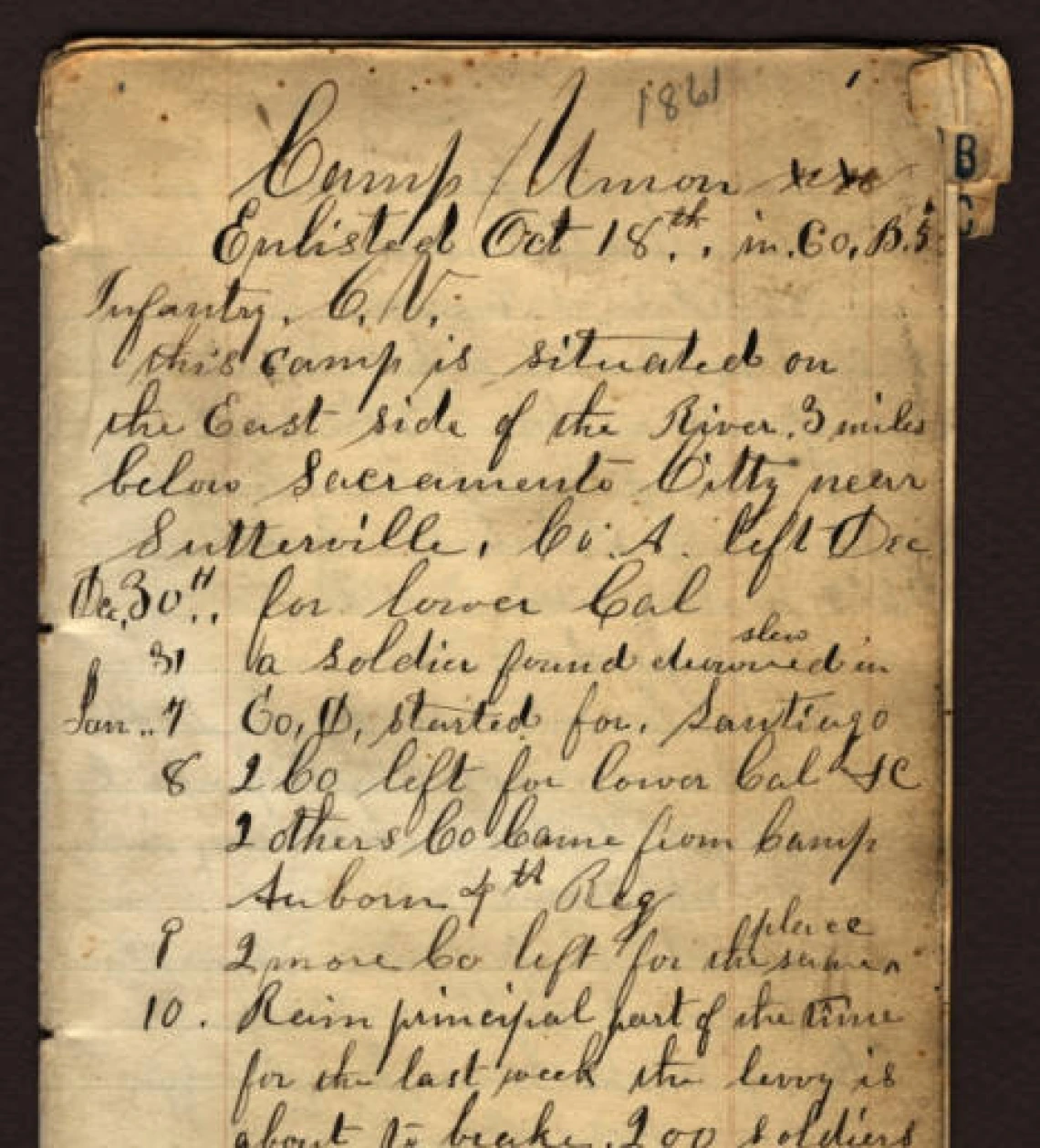Alexander Grayson Bowman diary

Collection area: Arizona and Southwest
Collection dates: 1861-1865
Hand-written diary and certificates of promotion and discharge, with accompanying transcript and biographical material, consists of daily record of the march from Camp Union, near San Francisco, Oct. 18, 1861, until his mustering out at Franklin, near El Paso, Texas, Dec. 12, 1864; and includes his subsequent journey back to California, to Feb. 12, 1865.
Alexander Grayson Bowman, born in New York in 1838, came West as a young man. He lived in several different states, including Colorado, until he moved to California in 1859 and joined the Union efforts in the California Volunteer Army, Company B, 5th Regiment Infantry. Under the command of Colonel James Henry Carleton, Corporal Bowman served as a pace counter in the march of the "California Column," a strategic effort organized to gain control of the Confederate-captured New Mexico territory (present-day Arizona, New Mexico, and parts of Colorado and Nevada) and to prevent the capture of California. During this expedition from southern California through Arizona, New Mexico and northwest Texas, Bowman kept a handwritten daily record of the march from his 1861 mustering in at Camp Union, California, until his mustering out at Franklin, near El Paso, Texas, as well as during his subsequent journey back to California, lasting until early 1865.
Soon after arriving back in California, Bowman returned to Colorado to start a business with his brother, William R. Bowman. Eventually, the Bowman brothers settled in Farmington, New Mexico, where they established The Bowman Brothers drugstore in 1878, the community's first pharmacy.
A collection guide explains what's in a collection. New to using our collections? Learn how to use a collection guide.
Collection guideThe collection has materials you can access online.
Access this collection
Visit us in person to access materials from this collection. Our materials are one-of-a-kind and require special care, so they can’t be checked out or taken home.
How to cite
Learn how to cite and use materials from Special Collections in your research.
